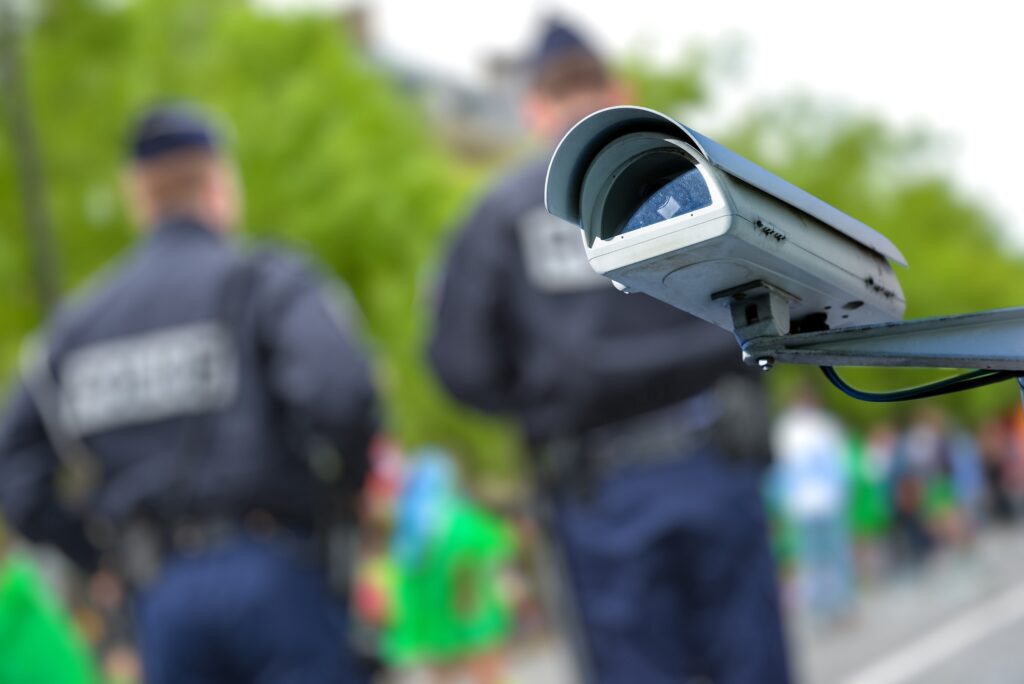The full capabilities of facial recognition technology are well-known, primarily through its use by the Chinese government, but its use in The West has so far been limited by regulation and public opinion.
This winter, however, an operation by the UK’s London Metropolitan Police Force (MET) has implemented facial recognition to make a number of arrests. Part of broader UK trials, this operation sheds light on the potential use of facial recognition in policing and other activities across the Western world.
The live facial recognition (LFR) technology was deployed in known “hotspots” around the district of Croydon by local police officers and the national Territorial Support Group (TSG).
From 22 alerts; ten arrests were made, eight compliances were established, and four court conditions were confirmed, according to a report by the MET. No false alerts were recorded in the December trial, which was hailed a success by the implementers.
“Live Facial Recognition is a precise community-based crime fighting tool that helps us to be more focussed in our approach to tackling crime, including robbery and violence against women and girls,” said Lindsey Chiswick, LFR lead for the MET. “The results are impressive – the details of anyone who is not a match are immediately and automatically deleted.”
The same technology was also used at the British Grand Prix in July and at King Charles III's coronation in May last year, and has proved so effective in trials that the UK government has not hidden its intention to expand its deployment.
"Developing facial recognition as a crime fighting tool is a high priority," said UK policing minister Chris Philp. “The technology has great potential. Recent deployments have led to arrests that would otherwise have been impossible and there have been no false alerts.”
Not all politicians share Philp’s enthusiasm, however. Dozens of cross-party parliamentarians have co-signed a letter calling for assertive regulatory action to prevent the abuse of facial recognition technology by UK police and others. Furthermore, lawmakers allege that false matches have, in fact, led to more than 65 wrongful interventions by the police during trials.
"Facial recognition surveillance involves the processing, en masse, of the sensitive biometric data of huge numbers of people -- often without their knowledge," the letter reads. "It poses a serious risk to the rights of the British public and threatens to transform our public spaces into ones in which people feel under the constant control of corporations and the government."

"Intelligent Borders" Facial Recognition
UK airports are beginning similar trials to streamline their immigration process. According to a UK Border Force announcement, airports will be aiming to establish “intelligent borders'' featuring new facial recognition systems to streamline immigration, reduce wait times, and increase security at checkpoints. Initial testing is expected to start this year and there is still no timeline on full deployment.
The technology will be provided by UK biometrics firm iProov, who have dubbed it “facial verification” rather than recognition due to its limited scope of verifying IDs from faces on a database (which sounds a lot like facial recognition). The firm also developed a facial verification system for rail travel, which was launched as an optional immigration lane at Eurostar’s London terminal in July 2023, laying the groundwork for airports in 2024.
The UK police trials will continue and pitting their success in policing against the substantial privacy resistance is likely to result in the use of the technology limited to specific situations only. History suggests that such situations will then be expanded over time as resistance wanes and the technology develops in function and cost.
Despite challenges, these trials drive the market for facial recognition providers and set the stage for its wider implementation in western countries. This emerging western market excludes some of the world’s biggest facial recognition players due to the continuing trend in bans of Chinese companies across Europe and North America, according to our research.
“In November 2022, the UK government announced a ban on equipment from Hikvision and Dahua across all sensitive sites over security risks from their ties to the Chinese government. The ban covers central government departments, arms of national security, and critical infrastructure,” our late 2023 video surveillance report explains. “In February 2023, police forces across the UK also began reviews to remove Chinese surveillance equipment.”
Whether it's called facial recognition, verification, or other names that will emerge, ongoing trials in policing and immigration are the beginning of a long story about the adoption of facial recognition technology in the West. What shape that future takes is still open to influence by privacy advocates and the speed of market saturation is still unclear, but many other technologies have overcome privacy challenges and facial recognition should be no different.
In that context, the bans on Chinese firms give Western firms a chance to establish themselves in the West and for robust governance to be developed before Chinese firms re-enter the market, whenever that might be. This phase of market bifurcation will have long-term implications on the development of facial recognition technology and the evolving global market landscape.
“By taking a nuanced, multi-faceted approach to privacy and ethics, public and private organizations can navigate the complex landscape of facial recognition responsibly,” our recent video surveillance report suggests. “As this technology continues to evolve, the moral and ethical frameworks governing its use must keep pace, ensuring that innovation benefits society while safeguarding individual privacy and dignity.”



